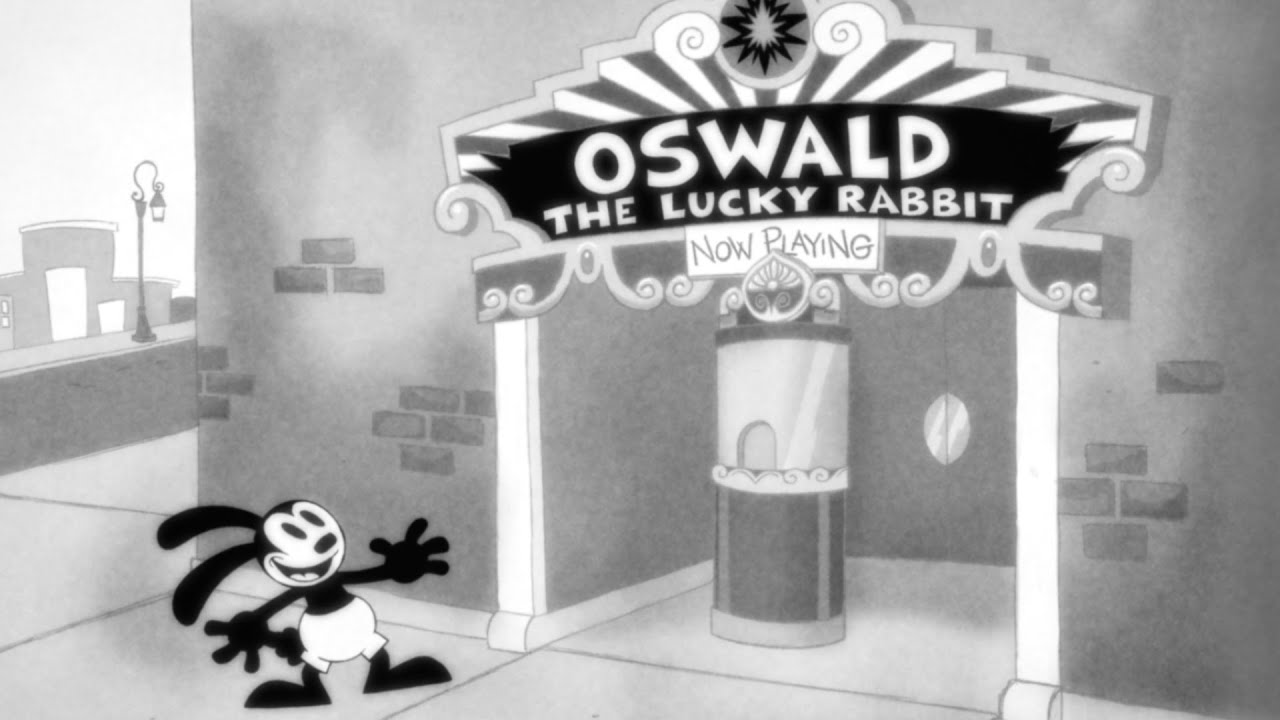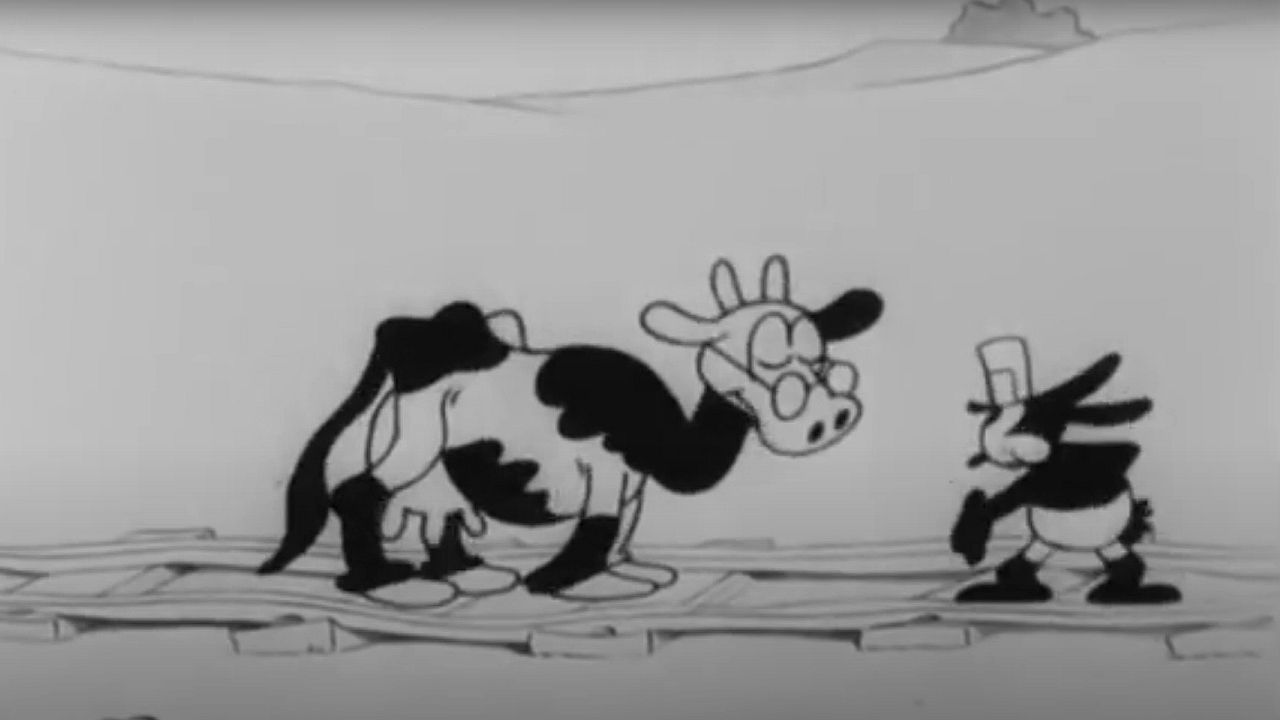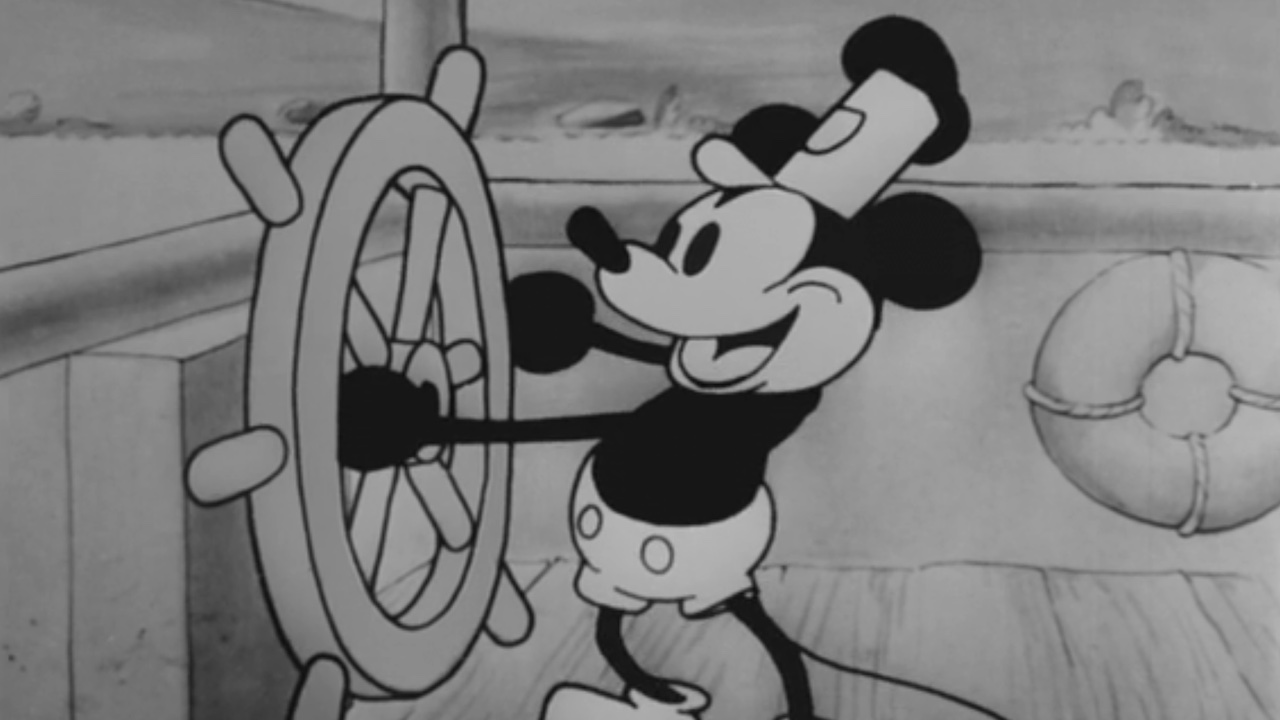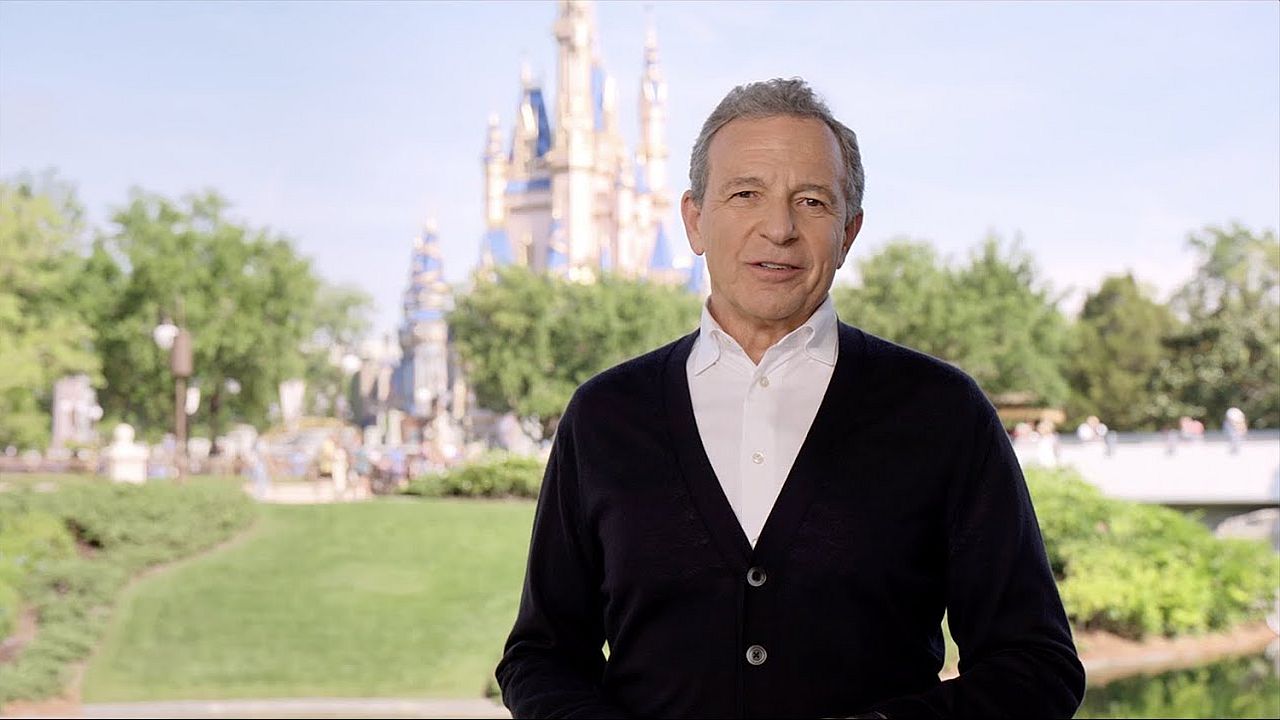
2023 marks the 100th anniversary of the founding of Disney Brothers Cartoon Studio, the company that would eventually become the Walt Disney Company that we know today. The cartoon studio first made its name with a series of shorts called the Alice Comedies, which combined live-action and animation. In 1927 though, the Disney Bros. Studio scored its first big break with a series of cartoons featuring a character named Oswald the Lucky Rabbit.
However, for nearly 80 years, this early work done by Walt Disney and his animators wasn’t actually owned by Disney, be it the man or the company. It wouldn’t be until 2006 that Oswald actually became Disney's property, so where did this character that predates Mickey Mouse come from, and why did it take so long for him to become a true Disney character?

The Creation Of Oswald The Lucky Rabbit
In 1927, the Disney Brothers Cartoon Studio had a deal with Winkler Pictures to distribute its animated cartoons. The company's primary output up to that point had been the Alice Comedies, shorts that used a live-action little girl (Alice) in a series of animated adventures. The shorts were well received, but not particularly profitable for Disney or Winkler.
The Disneys had been looking for something new, and that came in the form of an offer from their distributor. Charles Mintz, who ran the day-to-day operations of Winkler Productions on behalf of his wife, who founded the company, signed a deal with Universal to produce a new series of animated shorts. The plan was to create a new mascot character in the style of Felix the Cat, whose popularity had started to decline. The character, including his name, Oswald the Lucky Rabbit, had already been determined by Universal, the studio just needed somebody to design the look and create the stories. Mintz turned to Disney Brothers, and Oswald would be designed by Walt and his lead animator, Ub Iwerks.
The first Oswald cartoon, Poor Papa, was not well received at Universal. It was deemed so bad that the studio declined to distribute it. The character underwent a bit of reinvention and redesign, and the second short, Trolly Troubles, was a hit. From there, the Oswald shorts became popular and the Disney Brothers Studio, which had been struggling previously, started to find its footing financially.

How The Loss Of Oswald Led To The Birth Of Mickey Mouse
Charles Mintz and Walt Disney had often clashed, even back in the Alice Comedies days. Mintz often felt the cartoons Disney produced weren’t as good as they could be, and he felt the studio took too long to finish the projects. He never had a problem telling Walt that, but Walt always felt his studio was underpaid for the work that they did.
By 1928, the fight between the two came to a head. Winkler and Universal had renewed their deal to continue producing Oswald cartoons, but Mintz decided that he didn’t need Walt’s company; or more specifically, he didn’t need Walt to do it.
George Winkler, Mintz’s brother-in-law, was the frequent go-between for the New York-based Winkler Productions and Disney’s Los Angeles studio. During these LA meetings, Winkler made offers to Disney’s animators to come and work directly for them. The majority of them would make the deal, so when it came time to renegotiate the deal with the Disney Brothers Studio, Mintz instead ended the deal and continued to make Oswald cartoons with his own people.
The story of what happened next has been told a number of different ways, even by Walt Disney himself. The most famous version is that while on the train back to California from New York, Walt tried to come up with a new character to replace Oswald, one that he would own himself, and thus could not be taken away. He made the first sketches of Mickey Mouse on the back of an envelope, and Walt and Ub Iwerks worked together on Mickey's final design.

How Bob Iger And Sunday Night Football Brought Oswald Back To Disney
However, in 2005, Bob Iger became CEO of The Walt Disney Company, and Oswald’s name wbrought back from obscurity. Video game designer until 1943, but after that, they endedw and he would go into Universal’s vault of properties, largely forgotten. He became little more than a piece of trivia concerning the pasts of Walt Disney and Walt Disney Studios.
However, in 2005, Bob Iger became CEO of The Walt Disney Company, and Oswald’s name was brought back from obscurity. Video game designer Sean Vanaman says he was part of a team that developed the initial concepts for the game that became 2010’s Epic Mickey, which was part of a Bob Iger initiative to reinvent Mickey Mouse. The game pitch included the idea that Oswald the Lucky Rabbit would be the game’s villain; he was depicted a character jealous of Mickey due to being replaced by him. The idea was pitched to Iger, who reportedly liked it. The only problem was that Disney didn’t own Oswald.
However, an opportunity presented itself to Iger in the form of sportscaster Al Michaels. Michaels had been the play-by-play announcer on Monday Night Football since 1986, and since 2002, he had done so alongside iconic sportscaster John Madden as the color commentator. When it was announced that the Monday Night game would move from ABC to ESPN starting with the 2006 season, it was also announced Madden would leave to work for NBC on that channel's Sunday Night game.
Michaels wanted to go with Madden to Universal-owned NBC, but he was still under contract to Disney-owned ABC. This opened a door of which Iger took advantage. He worked out a deal in which NBC would buy out the remainder of Michaels’ ABC contract. In addition, NBC gave ESPN some additional broadcasting rights on sporting events, but the biggest “get” of all, was that Disney took back the rights to Oswald the Lucky Rabbit as a character, as well as the rights to all the Oswald cartoons that had been produced under Walt Disney.
Today, Oswald the Lucky Rabbit is still something of an obscure character, but he is around. Disney produced a new Oswald the Lucky Rabbit short in 2022, and the character was the centerpiece of the 2023 Chinese New Year celebration at Disney California Adventure since it’s the Year of the Rabbit. An Oswald-focused Disney+ series that was planned was eventually canceled, but we're sure to see the character again.
In the end, the point of bringing Oswald home to Disney was more symbolic than anything else. Oswald is never going to make the Walt Disney Company a lot of money, but as a creation of Walt, he belongs at Disney, and thanks to one famous sportscaster, he’s home.







